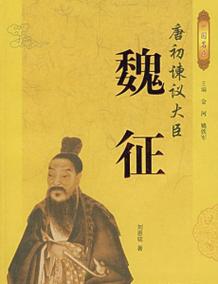Many people are not familiar with the Huangchao Uprising. Let’s follow the editor of the History Encyclopedia to appreciate it together. As a tomb digger in the Tang Dynasty, what was the fate of Huang Chao after his rebel army was defeated? Has Huang Chao become a monk? Or was someone killed?

Huang Chao, the tomb digger of the Tang Empire, wrote this poem that has been passed down for generations in anger after many years. He can also be considered a person of great ambition.
Seeking refuge with Wang Xianzhi
At the end of the Tang Dynasty, the feudal lords were divided, the emperor was incompetent, and the people lived in dire straits. In 875, Wang Xianzhi raised the banner of righteousness in Puyang to resist the corrupt Tang Dynasty. Immediately captured Caozhou, Puzhou, and Yunzhou. Huang Chao, who was living in Caozhou, was an uneasy person. He saw that the peasant uprising army had captured his hometown and he had repeatedly failed, so he gathered thousands of people with his nephew Huang Cun, Huang Kui, Huang Ye, and nephew Lin Yan to respond to Wang Xianzhi. The grass army became increasingly powerful. After the two armies met, Huang Chao was elected as the second in command and engaged in a fierce encirclement and counter encirclement battle with the official army in the Central Plains region.

Huang Chao and Wang Xianzhi parted ways
The Tang army saw no results in the encirclement and suppression, so they changed their strategy to focus on appeasement. Wang Xianzhi’s belief wavered and she prepared to accept appeasement, but Huang Chao believed that it was inappropriate to accept appeasement after the successive victories of the rebel army. The two argued incessantly. Subsequently, the two soldiers split into two groups: Wang Xianzhi led a group of people to approach Henan, Huainan, Runan and other places; Huang Chao led a group of people north to Shandong. In 878, Wang Xianzhi died on the battlefield.
Crossing the river and sweeping across Jiangnan
After Wang Xianzhi died in battle, Huang Chao led the rebel army to capture Ruzhou and attack the Jianghuai fortress of Yangzhou. In 878, Huang Chao set out from Puzhou and fought along the border of Shandong and Henan all the way to central Henan, advancing towards the eastern capital Luoyang. The court quickly mobilized the Xiangzhou army to guard Luoyang.
Huang Chao saw the relaxation of the Yangtze River defense line and turned south to sweep through Jiangnan. In the spring of 879, Huang Chao captured Fuzhou, and in the autumn of the same year, he took the southern important city of Guangzhou and announced to the world that the rebel army was about to launch a northern expedition, questioning the court and eliminating eunuchs.
The Northern Expedition proclaimed himself emperor
In the winter of 880, Huang Chao led his army on a northern expedition. In November, Huang Chao captured Luoyang and directed his troops directly towards Chang’an. Huang Chao continued to advance westward and advanced towards Tongguan. After a battle, he defeated the official army and captured Tongguan. Tang Xizong heard this and quickly fled southward.
In December, the army of Huang Chao entered Chang’an. In 881 AD, Huang Chao proclaimed himself emperor in the Hanyuan Hall, designated the country as “Daqi”, and changed the name to “Jintong”.
Defeated and killed
In 882, Zhu Wen rebelled against the rebel army and surrendered to the Tang Dynasty. Li Keyong led 10000 elite soldiers southward to attack the rebel army, but Huang Chao was defeated and began to retreat eastward and northward.
In 884, the Tang court ordered the Shatuo army to once again march south to besiege the rebel army, and Huang Chao was forced to flee north with his army. In June, the Shatuo army took advantage of the crossing of the Bian River in Huangchao and launched a defensive attack, but the rebel army was defeated without killing. Later, under the pursuit of the government and army, Huang Chao fled to Shandong and was trapped in the Wolf Tiger Valley in Mount Taishan Mountain. He cut his own throat after being defeated.
Although Huang Chao was ultimately defeated and committed suicide, he shook the foundation of the Tang Dynasty. Shortly after the failure of the rebel army, the Tang Empire also fell, and history entered the Five Dynasties and Ten Kingdoms period.


